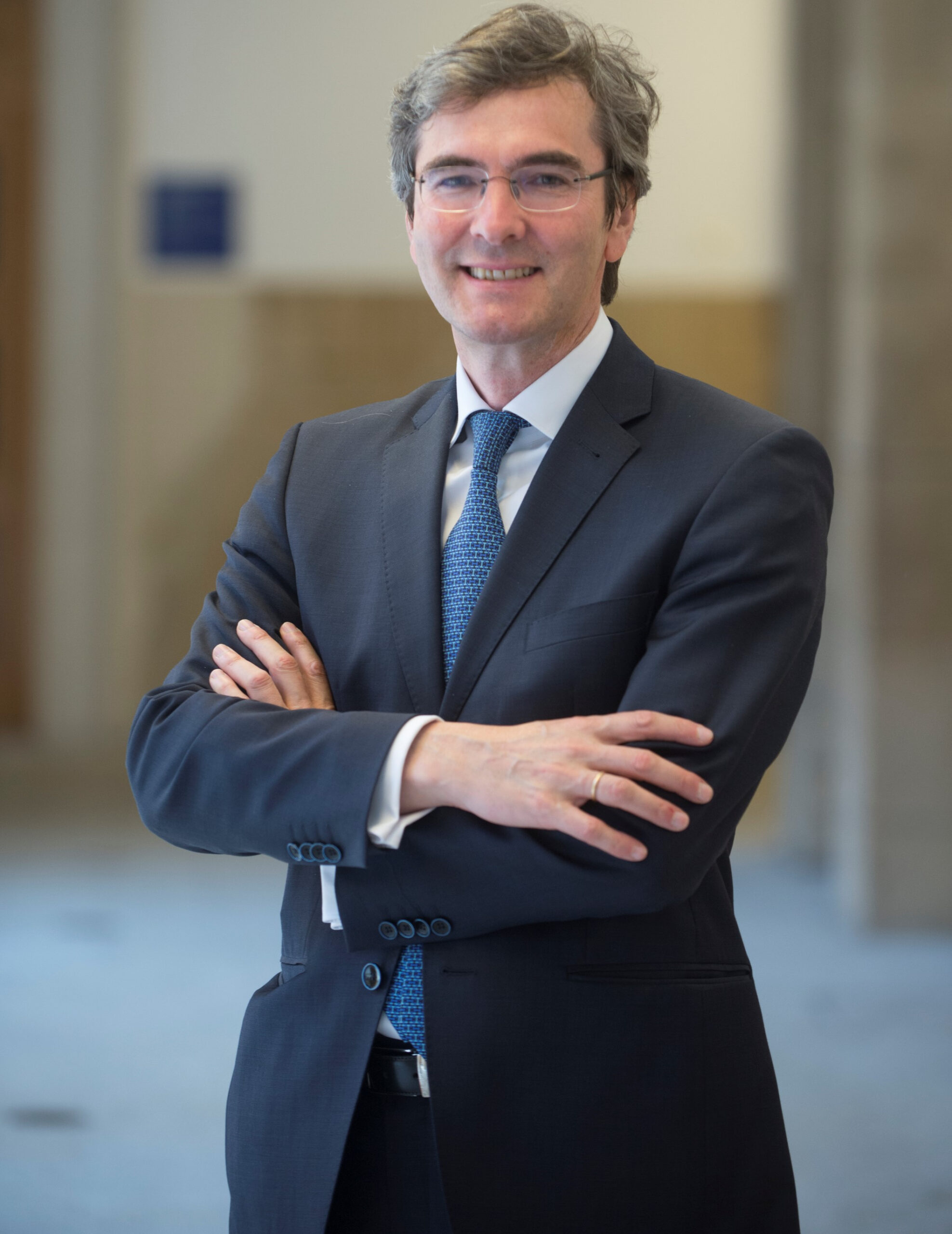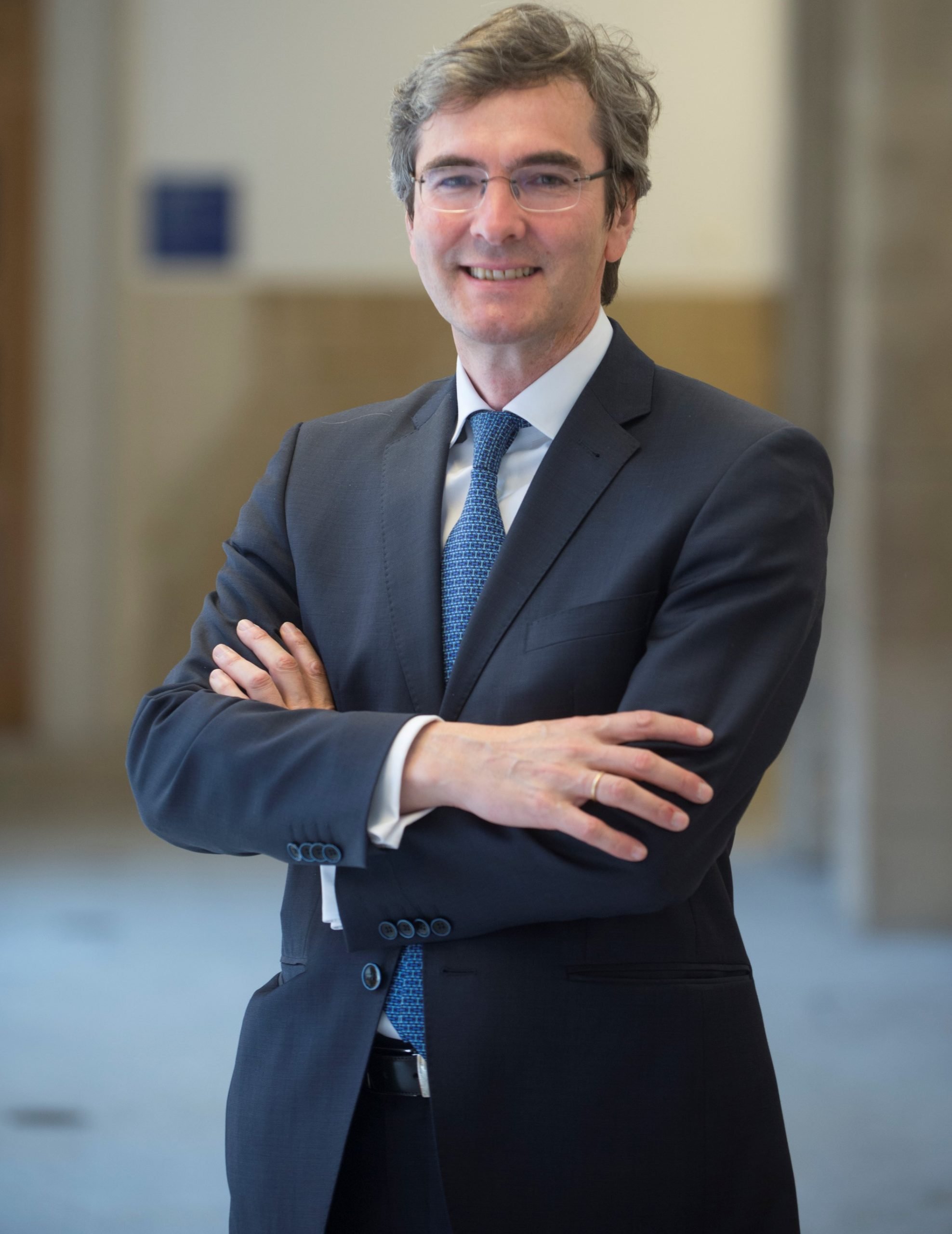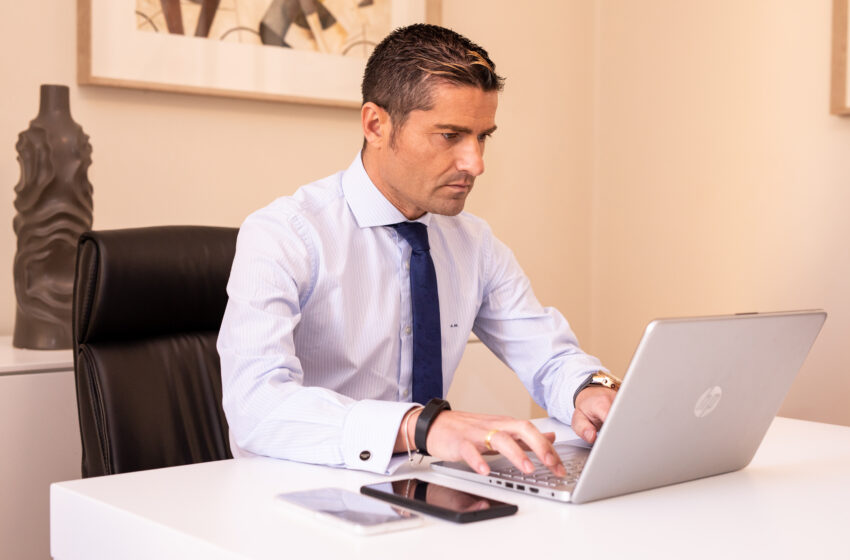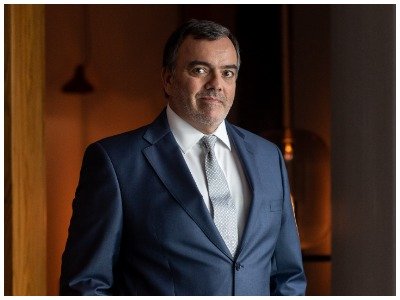The free-electron: Live and let live

Originally from Burgos, our November’s Partner Abroad graduated in Law from the Universidad de Valladolid and has spent more than 30 years developing his professional career in the European capital. Ramón García-Gallardo is managing partner of the Brussels office and head of Competition at King & Wood Malleson. He is a horse lover and considers himself a global lawyer, “atypical” and difficult to classify into a single speciality, which is why he calls himself an avocat d’affaires and recognises himself as “a free electron”. From a Legal lineage, he is confident that, at least, one of his daughters will perpetuate the saga. After talking to him, something tells us that seeing this lawyer in action, exercising one of his defence strategies, has to be better than watching any trendy TV series.

Looking back, what balance can you make? ¿How would you describe -by way of Memories- your personal and professional development?
It has been a long voyage… I arrived in Brussels in 1989 with a higher-education grant from a Spanish Foundation to study an LLM on European and Competition Law at the Free University of Brussels. Actually, the call for grants was to study in US Universities, but I told them that I would prefer to come to Brussels to study EU Law, and the jury accepted! I had just completed an LLM on European Law and Human Rights at the University of Salamanca at the same time that I provided the compulsory military service and a summer’s course on Competition Law at King’s College with Professors Sir Francis Jacobs and Valentine Korah.
In 1990, I started working as a lawyer with the Cremades Brothers and Partners, who were one of the pioneers to establish an office in Brussels once Spain joined the European Communities. Three years later, in 1992, I moved to Cuatrecasas -although I was seconded nine months to their Barcelona office to closely work with Cani Fernández, currently President of the Spanish Competition Authority. Considering that to become a partner in this law firm seemed to be a quite long race for a business-oriented lawyer, in 1995, at 30 years old, I accepted a proposal from Cremades to come back as a partner and managing director of their Brussels Office. Five years later, when the Cremades brothers and Partners separated each other, I decided to acquire the office to join SJ Berwin.
Like a curiosity, I can say that in 1999 Carlos Pazos proposed to SJ Berwin that I become their Managing Partner in Brussels at the same time that he was opening their Madrid office under the name of SJ Berwin, Pazos, Gallardo y Asociados. Since that date, I have been closely working with the Partners of KWM Madrid and leading the EU and Spanish Competition practice.
By way of summary? I can state that I have completed 30 years working as a lawyer in the capital of Europe. However, my practice has always been wider than EU and Competition Law. Although Brussels has been and is still my home port, due to my interests and walks of life, I would define myself as a global lawyer, hardly difficult to allocate me in a particular area of Law, in fact, when people ask about my practice, I simply say that I am an international “avocat d’affaires” that very much likes to make a face to complex cases of my clients wherever they have a problem or a new project in any part of the world.
Where did your vocation for Law come from? ¿Did you have a clear idea from the very beginning that you would become a private practice lawyer rather than an in-house? What drew your attention to K&W Mallesons?
Definitively I can confirm that it came from my family, where there were a lot of lawyers, notaries, etc. In my case, I liked to go to my family s local law firm in Burgos, where my father and brother Juan practised and also my grandfather as bailiff. To this respect, I have to say that the continuity of the García-Gallardo “saga” is guaranteed by several nephews and nieces that have been recently qualified and practice in Madrid and Burgos. Further, my two daughters are currently completing Law and business administration studies, so I trust that any of them will also become a lawyer.
On the other hand, I have never thought about the possibility to work as an in-house lawyer or, for instance, as an international public officer of the European Union here in Brussels, where plenty of associates working with me have joined across the years the EU institutions. I think that it would have gone against my own strong character and stuck me by straitjacketed internal policies. Actually, I have always been a “free electron”, and this is precisely what attracted me from Cremades, SJ Berwin, and later KWM, the high degree of autonomy that I have had to practice my profession, organise teams, manage a small office, etc. But it is also true that I have been fortunate with the strong performance of the Brussels office across the years that, of course, has granted me had the freedom to operate in the difficult Brussels Legal market.
You lead the EU, Competition and Trade practice of KWM, but in fact, you also cover other practice areas; Transport and Energy Law, Shipping Law, Agriculture Law, Fishing Law, Food Law, R&D Law, Innovation Law… In addition, you have provided legal advice on cases related to different sectors. Do you define yourself as a multidisciplinary lawyer? If you could choose, which is the sector of activity that has granted you greater satisfaction across your professional career?
First of all, in Brussels, the foreign EU lawyers are registered in the Brussels Bar in an ad-hoc list called “EU List” regardless of the fact that we are also members of the bars of origin, in my case Madrid and, in principle, we are not allowed to handle Belgian cases alone, however in my case, with the number of years working on M&A and litigation matters related to Belgian companies, I could become a full Belgian qualified lawyer “avocat” or “advocaat” just sending the Bar a list of my record of cases.
In relation to my areas of practice, the variety of European Law has allowed me to represent clients (States, trade associations, companies and individuals) from a wide list of sectors, but it is true that I have handled more cases related to the fishing and agriculture and food, energy, retail and maritime and air transport sectors.
By branch of Law, the main cases relate to Competition, Trade and Regulatory matters. But also Sports Law, liberal professions with “hot” EU cases.
But I also have a nice quota of litigation cases before the EU Courts headquartered in Luxembourg, arbitral tribunals (ICC Paris, SHIAC in Shanghai, LCIA, Dubai, PCA in The Hague). And more specifically, also before the International Tribunal of the Law of the Sea of United Nations, headquartered in Hamburg. Always acting as counsel of one of the parties, never as arbitrator. I firmly believe that I would never become a good arbitrator!
Finally, if I could choose, I would prefer litigation cases before the EU and International Courts and Arbitration cases. Litigation cases have granted me the greatest satisfaction across my professional career.
You are the managing partner of the K&W Mallesons Brussels office. Since your arrival, ¿can you explain how your office has evolved?
The Brussels offices of international law firms, with some expectations, used to maintain a small size, both in number of Partners and associates and supporting teams. In my case, we have never been more than three partners and a few numbers associates and trainees, maybe because I have never represented law firms with a relevant list of strong offices in the largest capitals across the globe. In these cases, their Brussels offices typically receive a lot of referrals from their networks.
Further, I have always focused on the quality of the work and the financial performance of the office rather than thinking to create larger structures. Another aspect to consider is that all the support teams such as IT, Business Development, H&R, even part of the Administration etc., are provided from other KWM offices. And at a working level, we have set up a mechanism by which we can easily rely on teams located in other offices. For instance, in Competition cases, we have strong practices in Australia, China and Germany, so we can rapidly create teams in accordance with the size of a transaction, etc. because in those offices we have Lawyers who in the past have spent periods in Brussels.
You are especially well known in the market for your strategies of defence. Do you remember a case you were especially proud of and could tell us about? In your opinion, what factors must be taken into account to set up a successful defence strategy?
Well, I have no idea who has made you this comment that no doubt honours me, but I consider not to deserve it. Across 30 years of pleading litigation cases, perhaps, I can highlight that I am the lawyer who has handled more cases before the International Tribunal of the Law of the Sea (ITLOS). I am particularly proud to work almost alone or with a short number of associates on a case and am used to facing to largest teams of senior lawyers, Professors, economists and public servants that often attend on behalf of the European Commission a public hearing before the EU Courts and similar before ITLOS. These battles of David and Goliat inspire me and rapidly increase my adrenaline (laughs).
Further, to the extent that the Procedural rules allow, I tried to keep some strong points of defence till the end, if possible, for the public hearing, where I very much like to increase the level of the oral debate. And in particular, to put some additional pressure on the witness and experts in the witness box on key factual points to wake up the interest of the judges or arbitrators.
As an expert in Maritime Law, and if you have watched the Amenábar’s TV series “The Fortune”, about what happened with the company Odyssey and its discovery in 2007 of the wreck (and treasury) of the Spanish frigate Nuestra Señora de las Mercedes. Which is your opinion on this case?
I have not watched it yet, but I remember well this case because in 2010, St Vincent & Grenadines, the flag State of the ship and on behalf of the Owners, i.e. the exploratory company submitted a damages claim against the Kingdom of Spain and a request for interim measures before the International Tribunal of the Law of the Sea of United Nations. The case was named “The M/V Louisa”, in fact, the name of the ship that was arrested at the time by Spain. In this case, Spain won the case with the argument of lack of jurisdiction. Two years later, Spain won the case before the Supreme Court of the US, and the treasury came back to Spain. In the end, too much noise for nothing, the value of the cargo was worth just over €7 million. I wonder how much was the fees invoiced to Spain by the American lawyers!
But, other than Law, you have other passions such as horses. A hobby that you share with your family and that you have made a reality at the equestrian resort that you own: Green Gates Resort for Horses. Is that where you give “free reins” to your emotions? (Joking tone) Anything that horseback riding and Law have in common?
Well, it is a good way to sum it all up. With my wife’s permission, (laughs) horses are my gateway, and in particular, the horse resort that I have opened in Burgos, which is working very well. The truth is that I don’t know if Law has much to do with horse-riding… But, if we go back to when I was competing, the drive to win horse jumping competitions triggered me to become the best version of myself as a litigator and multidisciplinary lawyer as well as it taught me to manage stressful situations.
Brussels is just a hop away from Madrid. Do you frequently travel to Spain for business, pleasure, or both?
I frequently travel to Spain, at least 2 or 3 times per month. As an anecdote, there was a week where I went back and forth to Madrid three times to visit some clients. This is due to the fact that many of our clients are located in Spain and that I handle the Spanish Competition Law practice before the CNMC. But above all, I have travelled a lot around the world, besides travelling for pleasure with my family. I used to have the habit of writing down in my diary all the flights I took every year, and as a result, I can now say that I have visited more than 110 countries, with some years having had meetings in more than 20 countries. I think this has enriched me as a person and as a lawyer, as I have had to deal with very diverse people in countries such as Australia, Canada, China, Egypt, Mexico, Norway or even in rarer countries such as Angola, Madagascar or Haiti. The issues that I handle are very diverse, for example, a lawsuit brought by the European Commission against my client, the Mandela Foundation, purchase agreement to Chinese manufacturers for the supply to the Belgian State of millions of protection devices in the pandemic COVID, an arbitration of an EU-funded infrastructure project in a developing country where I represent the interest of the constructing company, a joint venture agreement in the field of fisheries with local partners in Iceland, arrest of vessels in a West African country, etc.
It seems that you keep a low profile in the social networks; however, you are happy with the success of others. This collides with the Spanish stereotype to be a country where it flourishes jealousy feeling against “winners”. Competitiveness is different in Brussels, or at the end of the day, the Law profession behaves similarly to any other city such as, for example, Madrid?
In Brussels, I think that competitiveness among law firms is multiplied in relation to what happens in Madrid. Bear in mind that most of the largest European, British and American law firms are active in the EU Brussels market, even law firms from other countries and all with cases before the European Commission. There is a lot of Competition to get instruction from a new client. But if you talked about jealousy, I think that what can happen in Madrid is pretty much the same that can happen in Brussels.
In relation to my low profile on social media, in fact, you are right. I am not a fan of social media in relation to matters related to my profession. I do not reflect in social media if I am going to attend or have attended a seminar, webinar, conference, prize dinners, etc. In Brussels, we use to say that there are two categories of lawyers; those who almost daily like to attend seminars, webinars, conferences, cocktails receptions (that sooner or later will come back post-pandemic) etc. and like to always post on social media what they do and, those who work (laughs).
One thing that I would have interested to know is whether the fact to daily post your professional life on social networks really increases the number of instructions.
What do you still need to do in Brussels? Do you plan to return to Spain one day?
Although I share the views that Brussels is a grey and boring city, it is also right to say that there are still plenty of things to do and visit around. Our idea is to return sooner than later to Spain, very likely moving among San Sebastián (where my wife comes), Burgos (where is part of my family and have the horses) and Madrid (with the broad offers of a cosmopolitan city and to continue working closely with my Spanish Partners at KWM. Having spent 30 years in Brussels, and with the effects of the post-pandemic and increase of teleworking, I am pretty sure that it will not be difficult to continue handling EU cases from Madrid or San Sebastian.
Please resume with a phrase your philosophy of life.
Live and let live.
By Desiré Vidal
To read the full interview on issue number 109 click here.












